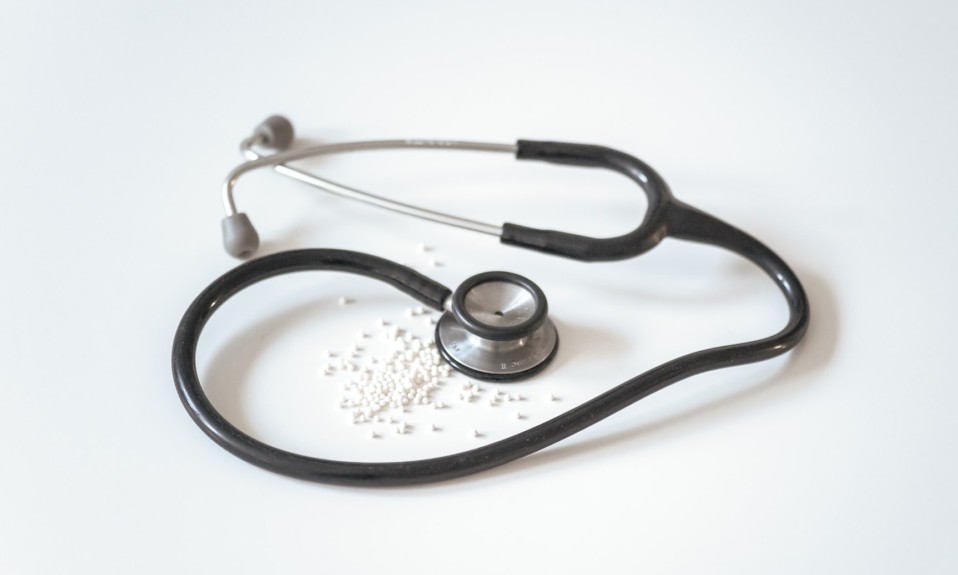Research shows that doctors with SUD receive a different type treatment—and it’s typically more effective than what’s applied to the general population
This post is reprinted with permission from one of TreatmentMagazine.com’s go-to blogs about addiction, treatment and recovery: Recovery Review.
By David McCartney
Addiction to alcohol or other drugs is not always easy to recover from. However, there are many pathways to recovery, including through treatment. One group of patients does far better than most other groups. In fact, their results are so impressive that many commentators have urged us to learn from what’s different about their treatment and follow up to see if we can transfer learning and experience. This group, researchers claim, sets the standard for addiction treatment. Indeed, it represents gold standard of addiction treatment. Who are this group? They are doctors, and I am one of them.
In 2009, in the Journal of Substance Abuse Treatment, Robert DuPont and colleagues published a study that looked at how addicted doctors were cared for in the treatment system and also what their outcomes following treatment were. The numbers were large. Nine-hundred six physicians admitted to 16 different state Physicians’ Health Programs were followed up for five years or longer.
The authors accept that doctors generally come to treatment with more resources than the average patient, but they also point out the hazards that doctors face that potentially increase relapse risk.
Treatment
The authors accept that doctors generally come to treatment with more resources than the average patient, but they also point out the hazards that doctors face that potentially increase relapse risk. (Exposure to drugs in the workplace, for one.) What was quite different about doctors in the U.S. is that they generally have access to specifically designed assessment, treatment and monitoring programs (Physicians’ Health Programs). These programs typically evidence long-term abstinence outcomes of between 70% to 96%. Since this paper was written, a Practitioner Health Program has been well-established and reports similar results. Here’s what the researchers of the 2009 paper say:
“For these reasons, the PHPs appeared to represent one of the most sensible and evidence-based approaches to addiction currently available. We reasoned that an examination of this novel care management approach might provide suggestions for optimally organized and delivered addiction treatment—real-world treatment at its best. If there were clear evidence of positive results from this form of care, the findings might provide guidance for improving mainstream treatment efforts.”
The Physicians’ Health Program Model
These are the features of a typical Physicans’ Health Program:
- Doctors sign binding contracts
- Abstinence is the goal
- Weekly doctor-specific mutual aid groups
- Attendance at 12-step mutual aid groups (AA, NA, CA, etc.)
- Regulatory boards are often avoided if doctors comply
- Extended care (five years)
- Recovery often starts with an active/planned intervention
- This is followed by an intensive residential (or out-patient)
rehab period, usually three months long - Withdrawal from work during treatment
- Active monitoring and care management
- Active family engagement
- Mental and physical health needs assessed
- Active management of relapse
- Random drug and alcohol tests over the five years
The Study
Sixteen PHPs participated in the national survey, which looked at all admissions (intention to treat) over a six-year period. The case records and lab results of 904 doctors were studied. Most (86%) were male, with an average age of 44. Two-thirds were married.
Drugs of Choice
The primary drugs of choice reported by these physicians were alcohol (50%), opiates (33%), stimulants (8%) or another substance (9%). Fifty percent reported abusing more than one substance, and 14% reported a history of intravenous drug use. Seventeen percent had been arrested for an alcohol- or drug-related offense, and 9% had been convicted on those charges.
Medication-Assisted Treatment/OST
For opioid use disorder in the patients of doctors, the gold standard is opioid substitution medication (OST)—it’s generally our first-line approach because of the evidence base for reducing harms.
How many of the hundreds of opiate-addicted doctors ended up on methadone? That would be just one, or to put it another way, 0.001% of the sample.
So, what about this treatment for opiate addiction in doctors? How many of the hundreds of opiate-addicted doctors ended up on methadone? That would be just one, or to put it another way, 0.1% of the sample.
Work
Seventy-two percent of the doctors got back to work. When they looked at doctors who successfully completed the program, this rose to 91%.
Overall Outcomes
Specifically, of the 904 physicians followed, 72% were still licensed and practicing with no indications of substance abuse or malpractice five to seven years after signing their contracts. In contrast, the PHP process appears to have moved approximately 18% of these physicians out of the practice of medicine through loss of license or pressure to stop practice.
Of the 904, 180 (20%) had a relapse episode and were reported to their licensing boards. However, only 22% of these had any evidence of a second relapse—generally indicating that the intensified treatment and monitoring were successful in maintaining remission.
Nuggets
- This was the largest sample of doctors ever followed and over the longest period
- Doctors use substances in a fashion similar to everyone else
- 78% of doctors in the study did not have a single positive drug test over the years of monitoring
- Outcomes did not differ by drug of choice; opiate-addicted docs did as well as alcohol-dependent docs
- IV drug users did as well as everyone else
- 50% of the doctors were polysubstance abusers
- This research is in keeping with literature before and since
What This Means for Treatment in General
If we applied the principles and standard of treatment that doctors get to other patients, would we see improved outcomes overall?
[I]f physicians were found to have significantly better outcomes than other groups when treated for diabetes or coronary artery disease, this would be of great public health interest.
Whatever the differences from other populations experiencing substance use disorders (SUDs), it is likely that the successful treatment of physicians with SUDs has important implications for SUD treatment in general. For example, if physicians were found to have significantly better outcomes than other groups when treated for diabetes or coronary artery disease, this would be of great public health interest.
Making All Treatment Gold Standard
The paper has some suggestions to transfer learning and improve addiction treatment outcomes:
- Adopt the contingency management aspects of PHPs
- Offer frequent random drug testing
- Create tight linkages with 12-step programs and abstinence standards
- Active management of relapse by intensified treatment and monitoring
- Continuing care approach
- Focus on lifelong recovery
Reflections
The fact that only one doctor ended up on opiate replacement is a remarkable finding. Are there double standards inherent here? Why do doctors so readily turn away from an evidence-based intervention, one they are very happy to prescribe for patients? It is possible that some doctors who would benefit from medication-assisted treatment are not getting access (though with such high abstinence rates over long follow-up periods, it’s understandable why the first offer is different)?
The expectation is that doctors will make the journey to abstinent recovery, but there seems to be a much lower expectation of their patients. Some argue this is just realistic, but does such “realism” result in poorer outcomes? Is there a mismatch between professional expectations and client goals? I’ve read recently that palliation is all that we can do for some and have been told in the past by a colleague not to buy into the idea that patients will ever get better. Safety considerations have to be paramount, and harm reduction at the heart of everything—but when a patient sets abstinence as a goal, could we do better at helping them get there?
When I came home from treatment and returned to work in general practice, I was disturbed that every week I was seeing people with substance use disorders that did not have the same options that were offered to me.
This is not about either or; it’s about having options available that don’t depend on your status or your income that help individuals and their families reach the goals that they set, rather than solely the goals that public health sets. When I came home from treatment and returned to work in general practice, I was disturbed that every week I was seeing people with substance use disorders that did not have the same options that were offered to me. Not all of them would necessarily need or choose such options, but some of them would, and they did not have the means to get to residential treatment. That led me to set up the service I now work in, but that’s another story.
I don’t think there’s much doubt that we could get better outcomes for our clients by raising the bar, introducing hope and increasing the intensity and duration of treatment, actively referring to mutual aid and thinking much more about the bridge from treatment to recovery community support, which is one of the keys to long-term recovery. Should doctors really get better treatment and follow-up than the rest of the population? Can we narrow the gap?
This Recovery Review post is by David McCartney, who is an addiction medicine specialist and Clinical Lead at LEAP, a quasi-residential therapeutic community addiction treatment program in Scotland. He trained as a family medicine practitioner and spent much of his career in practice in inner-city Glasgow. Having retrained in addictions, he now works exclusively in the field and until recently was an advisor to the Scottish government on drugs policy. He is a member of the Royal College of General Practitioners. His opinions expressed here don’t necessarily represent the views of his employer. Find more of his writing, as well as a thought-provoking range of articles, insights and expert opinions on treatment and addiction, at RecoveryReview.com.blog.
Photo: Markus Frieauff














